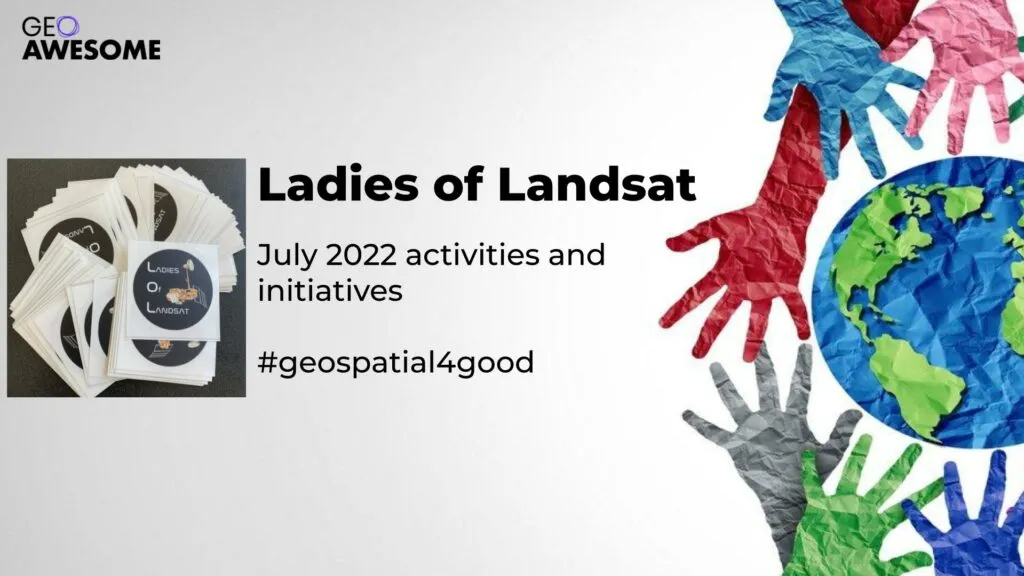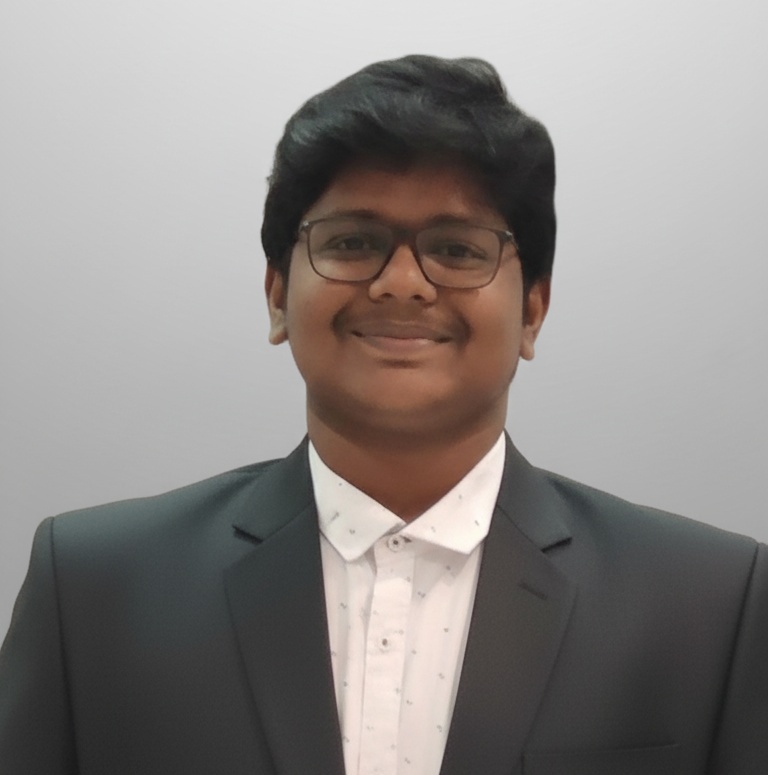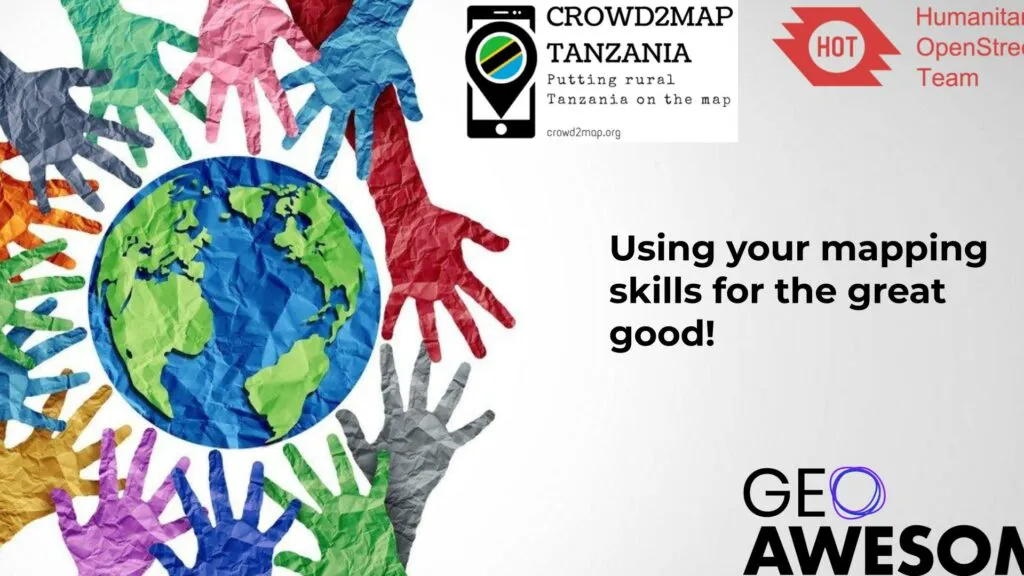
Ladies of Landsat – Summary of activity – July 2022
Building a more diverse, inclusive, open and welcoming geospatial industry is all about giving a voice to a more diverse group of geospatial experts and it’s a pleasure to showcase Ladies of Landsat and the all the awesome work they do! Here is the summary of their activities in July 2022.
June 27 – Ladies of Landsat account reached 10,000 followers on Twitter!
?We now have 10,000 followers! THANK YOU!?
This huge milestone motivates us to keep pushing towards an inclusive future in #EO!?️
To celebrate, we're having a sticker raffle! Comment what #LadiesofLandsat means to you by July 1 to enter. We'll pick 10 random winners! #EOChat pic.twitter.com/xn86Mj1rDp
— Ladies of Landsat (@LadiesOfLandsat) June 27, 2022
June 27 – Manuscript Monday feature of Dr. Meha Jain
.@Meha__Jain et al. (2021) quantify the potential impacts of groundwater depletion on India's cropping intensity using a high-resolution winter cropped data product made from #MODIS #EVI. #LoLManuscriptMonday https://t.co/Y8oKl3rNQ9 pic.twitter.com/O08A6eelAe
— Ladies of Landsat (@LadiesOfLandsat) June 27, 2022
July 4 – Our co-director, Dr. Morgan Crowley, gave a guest lecture to the EAGLE MSC study program at University of Wuerzburg about science communication and Ladies of Landsat.
great talk by @morganahcrowley about @LadiesOfLandsat and their important work and history – plus their sisters @SistersofSAR @WomenofWaves @DamesOfDrones – very inspiring for our #EAGLE #earthobservation students pic.twitter.com/TzA4DWhDhw
— EAGLE international Earth Observation MSc (@EAGLE_MSc) July 4, 2022
July 4 – Manuscript Monday feature of Dr. Antara Dasgupta
.@ant_dasgupta et al. (2021) simulate multiple spatiotemporal high-resolution #SAR-based flood extent assimilation scenarios in Australia to identify the best observation design for flood forecasting with the #LISFLOOD-FP model. #LoLManuscriptMonday https://t.co/nUQm3BBvlk pic.twitter.com/EDre1XUQqy
— Ladies of Landsat (@LadiesOfLandsat) July 4, 2022
July 11 – Manuscript Monday feature of Chelene Hanes
.@WildfireScience et al. (2022) create a methodology for mapping organic layer thickness & fuel loads for the boreal forest in Alberta, Canada using in situ plot data, covariate raster data, & a #RandomForest #MachineLearning approach. #LoLManuscriptMonday https://t.co/xZS1bdgzks pic.twitter.com/PMqe1VocLi
— Ladies of Landsat (@LadiesOfLandsat) July 11, 2022
July 18 – Manuscript Monday feature of Yingtong Zhang
.@YingtongZhang et al. (2022) quantify the availability of #Landsat Tier 1 data from 1985-2020 as density metrics measuring cloud-free, snow-free, unsaturated, non-hazy pixels for global time-series analyses of land change monitoring. #LoLManuscriptMonday https://t.co/1FCNxy7ZHY pic.twitter.com/69rE3zgKWl
— Ladies of Landsat (@LadiesOfLandsat) July 18, 2022
July 21 – Our founder and co-director, Dr. Kate Fickas, visited @Interior Assistant Secretary @AsstSecTrujillo in Washington DC and presented together with other Ladies of Landsat about their research to congressional staff on Capitol Hill for the @NASA_Landsat @USGSLandsat 50th Anniversary celebrations. #Landsat50
A true honor to visit @Interior Assistant Secretary @AsstSecTrujillo with @LadiesOfLandsat in Washington DC this week for the beginning of @NASA_Landsat @USGSLandsat 50th Anniversary celebrations #Landsat50 ???
? from the beautiful office of @SecDebHaaland! #WomenInSTEM pic.twitter.com/6gJckegMzs
— Dr. Kate Fickas (@katefickas) July 21, 2022
July 25 – Manuscript Monday feature of Itohan-Osa Abu
.@Itohan_Osa_ et al. (2021) use multi-sensor observations from Sentinel-1 #SAR and Sentinel-2 in a #randomforest algorithm to map and analyze 2019 cocoa plantations relative to protected areas for Côte d'Ivoire & Ghana, West Africa. #LoLManuscriptMonday https://t.co/MDHhSNlc2Q pic.twitter.com/D5rR2g0uhg
— Ladies of Landsat (@LadiesOfLandsat) July 25, 2022
Overview Ladies of Landsat:
It is a supportive and intersectional organization for underrepresented remote sensing scientists. It was founded in 2018 by Dr. Kate Fickas and joined soon after by co-director Dr. Morgan Crowley and lead-organizers Dr. Flávia de Souza Mendes and Dr. Meghan Halabisky. Ladies of Landsat aims to lift up, retain and attract underrepresented scientists to Earth observation sciences through our many outreach activities and networking events!
Manuscript Monday database:
https://github.com/ladiesoflandsat/LOLManuscriptMonday/blob/main/README.md
Did you like the article? Read more and subscribe to our monthly newsletter!







